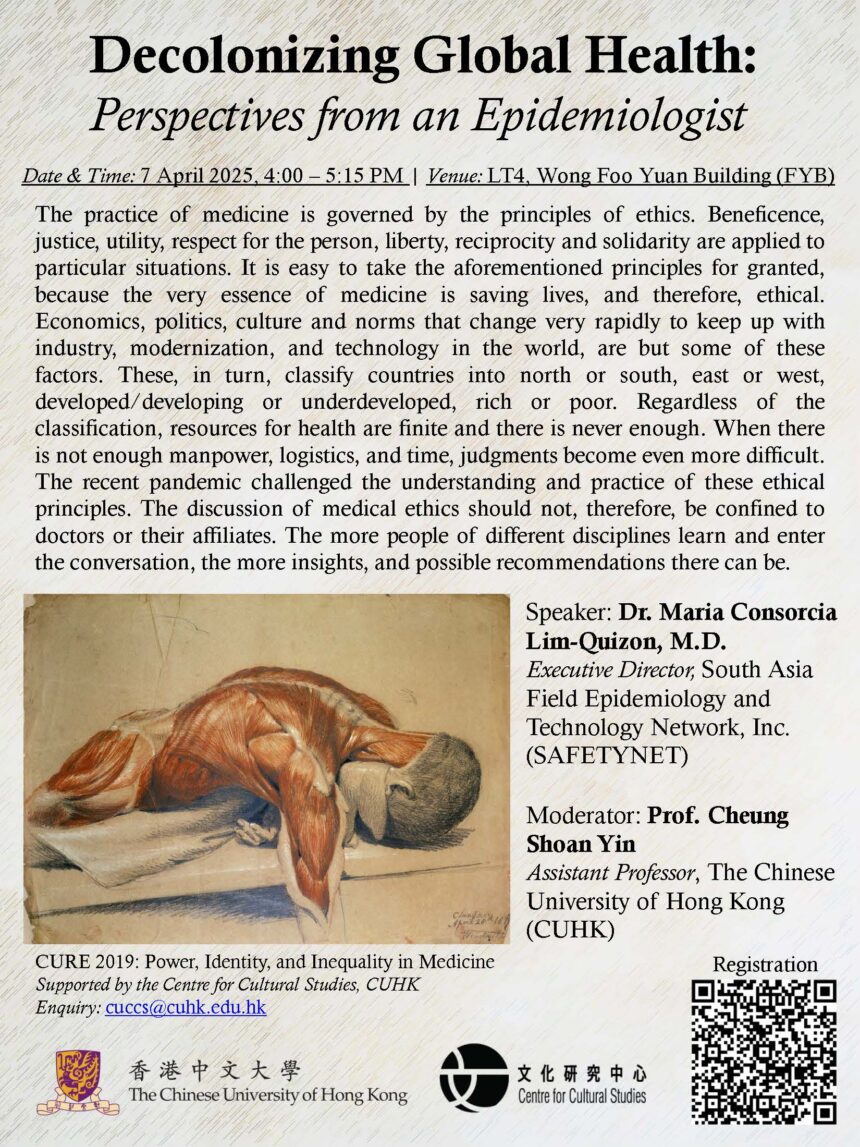Decolonizing Global Health: Perspectives from an Epidemiologist
Date: 7 April 2025
Time: 4:00 – 5:15 PM
Venue: LT4, Wong Foo Yuan Building (FYB)
Registration: https://cloud.itsc.cuhk.edu.hk/webform/view.php?id=13705154
Speaker: Dr. Maria Consorcia Lim-Quizon, M.D.
Executive Director, South Asia Field Epidemiology and Technology Network, Inc. (SAFETYNET)
Moderator: Prof. Cheung Shoan Yin
Assistant Professor, The Chinese University of Hong Kong (CUHK)
The practice of medicine is governed by the principles of ethics. Beneficence, justice, utility, respect for the person, liberty, reciprocity and solidarity are applied to particular situations. It is easy to take the aforementioned principles for granted, because the very essence of medicine is saving lives, and therefore, ethical. Economics, politics, culture and norms that change very rapidly to keep up with industry, modernization, and technology in the world, are but some of these factors. These, in turn, classify countries into north or south, east or west, developed/developing or underdeveloped, rich or poor. Regardless of the classification, resources for health are finite and there is never enough. When there is not enough manpower, logistics, and time, judgments become even more difficult. The recent pandemic challenged the understanding and practice of these ethical principles. The discussion of medical ethics should not, therefore, be confined to doctors or their affiliates. The more people of different disciplines learn and enter the conversation, the more insights, and possible recommendations there can be.
Supported by Centre for Cultural Studies, CUHK
Enquiry: cuccs@cuhk.edu.hk




